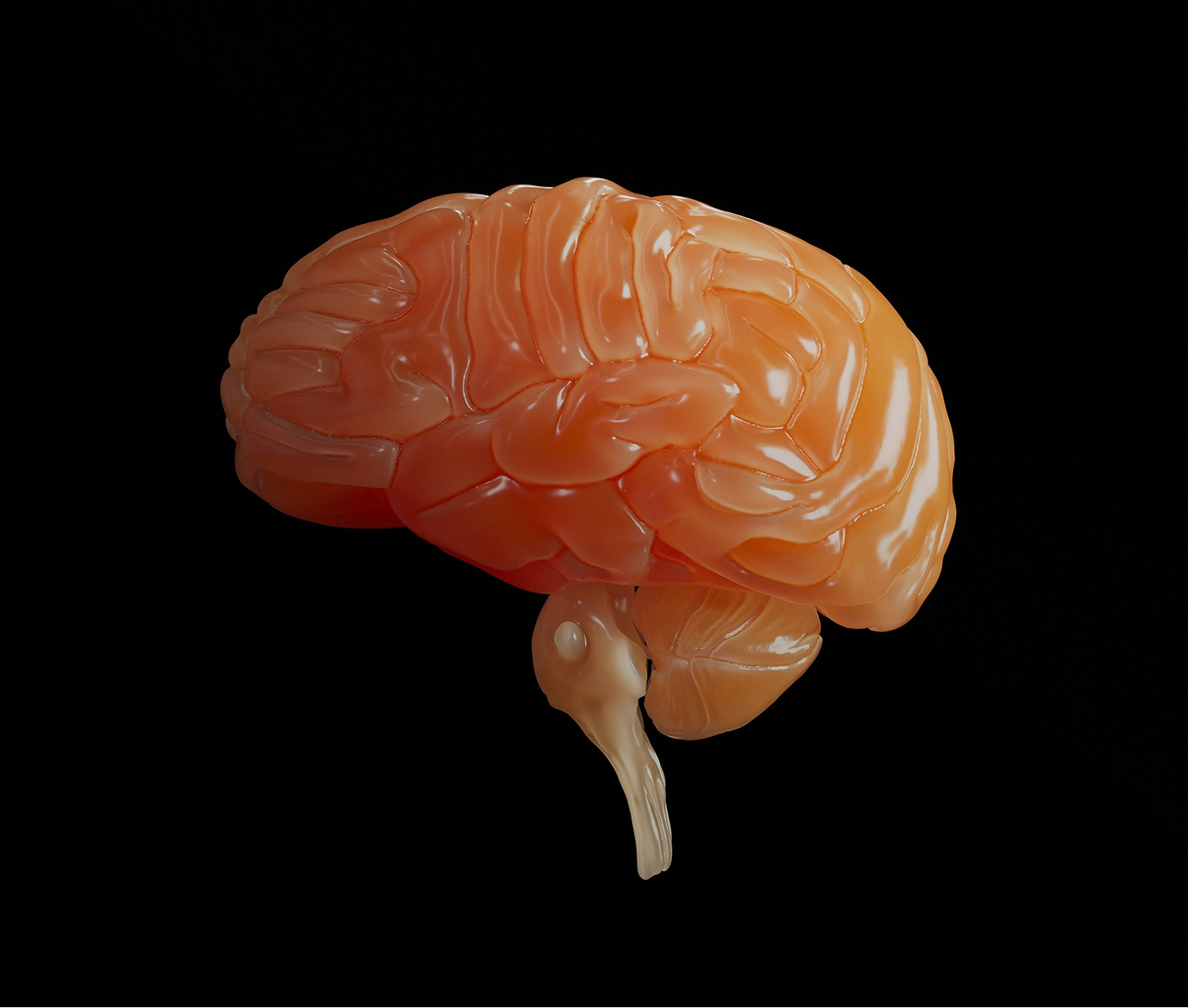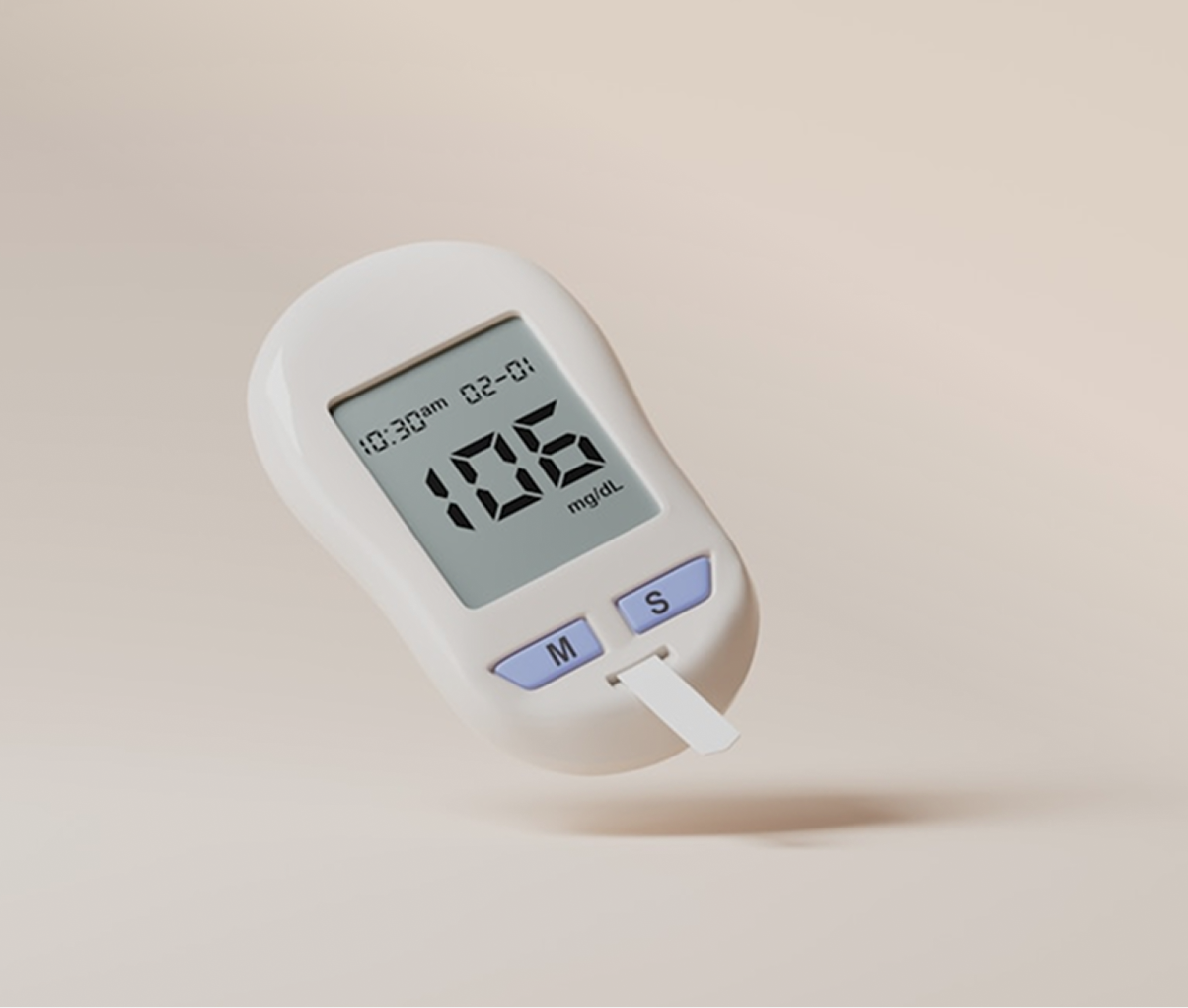
The Biomarker Revolution
What if your annual check-up is obsolete?
You know how it goes: blood pressure, cholesterol, a few vague remarks from your doctor about your diet. He suggests you cut down on the alcohol, maybe she prescribes you a statin, and you're out the door.
But while your doctor ran a basic blood panel, they didn’t measure your metabolic rate, map your hormone rhythms, analyze your amino acid deficiencies, scan for early tumors, or test how your body actually processes nutrients.
Your annual physical examines maybe 5% of your measurable biology. The other 95% is where disease begins, where optimization happens, and where the future of your health is written.
Most diseases start silently. And beneath the surface, your body holds a more complete dataset—one that can reveal inflammation, oxidative stress, mitochondrial health, early disease risk, and much more.
What if you could track, reverse, or even prevent disease—based on real-time data from your own biology?
That’s the promise of personalized, proactive medicine and comprehensive biomarker testing.
Biomarkers are measurable signs of what's happening inside you down to the cellular and molecular level. We now have access to thousands of these signals through blood, stool, saliva, urine, DNA, and even wearable devices. Some are simple. Some are cutting-edge. But taken together, they create a map—a personalized dashboard—for your internal health.
Here’s the magic: biomarkers don’t just tell you what’s happening. They tell you how fast it’s happening and where to intervene.
Are your inflammatory markers creeping up? You can course-correct before it becomes autoimmune disease.
Is your insulin climbing year over year? You can reverse the trend before it becomes Type 2 diabetes.
Are your stress hormones flatlined? You can rebuild your reserves before burnout hits.
Yet most lab reference ranges are based on statistical averages of the general population. But in a world where metabolic dysfunction is widespread and inflammation is rampant, being “normal” might just mean you're on a slow road to disease.
Personalized medicine flips this script. It doesn’t ask, “Are you average?” It asks, “Are you optimal—for you?”
Roughly 90% of healthcare spending is on disease after it happens. Biomarker testing lets you catch the trajectory early—and potentially reverse it.
We’re focusing here on biological biomarkers—not fitness metrics like VO2 max or HRV. For those, check out The Longevity Fitness Markers Issue, where we dive deep into performance, movement, and the metrics that predict how well you’ll age on your feet.
The Full Spectrum: What We Can Actually Measure Now
Blood Biomarkers: The Foundation
Your blood is a real-time snapshot of your entire biological system. While standard labs test around 20 markers, comprehensive blood analysis can measure 140+ biomarkers, covering inflammation, nutrients, hormones, immune function, and early disease markers.
We can now:
- Detect cardiovascular disease 15–20 years before heart attacks,
- Identify insulin resistance a decade before diabetes, and
- Spot autoimmune dysfunction years before symptoms appear.
Advanced inflammatory markers like hs-CRP and IL-6 show systemic inflammation that drives aging. Nutrient panels reveal deficiencies that standard medicine misses entirely. Specialized immune markers can predict who gets sick frequently and why.
What this tells us: the difference between “normal” (statistical average of a sick population) and “optimal” (what your biology actually needs to thrive).
Metabolic Testing
This is where we measure how efficiently your body actually produces energy. Metabolic testing reveals your real calorie burn, how well your mitochondria function, whether you're metabolically flexible (can burn both fat and sugar), and your true cardiovascular fitness.
The exciting breakthrough is discovering that “slow metabolism” isn't a life sentence—it's often fixable dysfunction. VO2 max testing shows your cells' ability to use oxygen (the best predictor of longevity). Respiratory quotient analysis reveals whether you're a sugar-burner stuck in carb dependency or a fat-adapted energy machine. Lactate threshold testing shows your exercise capacity and recovery ability.
What this tells us: Your body's ability to produce and use energy efficiently. It shows why weight gain, fatigue, and poor recovery aren’t character flaws; they’re signs of metabolic dysfunction that can be identified and improved.
Hormone Rhythm Analysis
Hormones are complex. In many cases, they drive how you feel day to day. They are your body's communication network, but standard testing only captures single snapshots. Advanced hormone analysis maps your daily rhythms, measures hormone metabolites (not just levels), and reveals how your endocrine system actually functions over time.
The revelation is that hormone problems aren't just about “low testosterone” or “thyroid issues.” They're about disrupted rhythms and broken feedback loops. Cortisol should peak in the morning and decline at night, but chronic stress flattens this curve. Sex hormones should fluctuate in healthy patterns, but modern life often locks them in dysfunction.
What this tells us: why you crash at 3:00 p.m. (cortisol rhythm disruption), why you can't lose weight despite dieting (leptin resistance), why you wake up tired (growth hormone and cortisol imbalances), and why your mood is unstable (neurotransmitter precursor deficiencies).
Amino Acid Profiling
Amino acids are the raw materials for everything your body builds—muscles, neurotransmitters, enzymes, immune compounds. Comprehensive amino acid analysis reveals which building blocks you're missing and why your biochemistry might be failing.
This testing is particularly exciting because it connects mental health to biochemistry. Low tryptophan means poor serotonin production (depression, anxiety). Inadequate tyrosine leads to dopamine deficiency (motivation, focus problems). Poor methylation cycle function affects everything from mood to DNA repair.
What this tells us: Many "mental health" and "aging" problems are actually amino acid deficiencies and methylation dysfunction. When you provide the right building blocks, the body often fixes itself.
Advanced Imaging
Medical imaging has moved beyond waiting for symptoms. Full-body MRI scans can detect tumors when they're still tiny and treatable. Coronary calcium scoring shows arterial plaque decades before heart attacks. DEXA scans reveal muscle loss and bone density changes years before fractures.
What's revolutionary is that we can now see biological age, not just chronological age. Visceral fat distribution, muscle mass, bone density, arterial inflammation—these are measurable markers of how fast you're aging. Early detection means early intervention when changes are still reversible.
What this tells us: Reveals problems before they become major. A small tumor caught early is curable. Arterial plaque detected early is reversible.
Genetic Analysis
Your DNA isn't destiny. Comprehensive genetic testing reveals how you metabolize medications, process nutrients, respond to exercise, and what diseases you're predisposed to developing.
The exciting frontier is nutrigenomics: how your specific genes interact with food. Some people have variants that make them poor fat metabolizers but excellent carb processors. Others have the opposite pattern. Pharmacogenomics reveals why some medications work brilliantly for some people and cause side effects in others.
What this tells us: Instead of generic advice, you get personalized optimization. Your genes might reveal you need 3x more folate than average, process caffeine slowly (affecting sleep), or have high Alzheimer's risk that can be mitigated with specific interventions.
Microbiome Testing
The 3 pounds of bacteria in your gut control far more than digestion—they influence mood, immunity, metabolism, and even cognitive function. Advanced microbiome testing reveals the specific bacteria strains you have, what they're producing, and how they're affecting your health.
This field is exploding because we're discovering the gut–brain–immune connection. Certain bacteria produce neurotransmitters that affect mood. Others create inflammatory compounds that drive autoimmune disease. Some produce metabolites that enhance longevity, while others accelerate aging.
What this tells us: Many “mysterious” health problems—chronic fatigue, depression, autoimmune conditions, food sensitivities—often trace back to gut dysfunction. Fix the microbiome, and systemic health often follows.
Learn more about nurturing your gut microbiome with advice from expert Dr. Mahmoud A. Ghannoum.
Continuous Monitoring
This is the most exciting frontier: measuring your biology continuously instead of with occasional snapshots. Continuous glucose monitors show how your blood sugar responds to specific foods, stress, and sleep. Heart rate variability tracking reveals your nervous system balance and recovery capacity.
The breakthrough is moving from static measurements to dynamic patterns. Instead of knowing your average blood sugar, you see exactly how your body responds to stress, different foods, exercise timing, and sleep quality. This creates feedback loops for optimization that were impossible before.
What this tells us: You stop guessing about what works for your body and start knowing. You see immediately how a poor night's sleep affects your glucose control, how stress impacts recovery, and which foods actually work with your biology.
The Full Picture
Here's where it gets interesting. When you combine all these measurement systems, patterns emerge that no single test could reveal.
The Metabolic Web
Your glucose monitor shows blood sugar spikes. Your amino acid profile reveals low glycine (needed for glucose control). Your hormone panel shows elevated cortisol (impacting sleep). Your microbiome test shows bacteria that produce inflammatory compounds when you eat certain foods. Your genetic analysis reveals poor insulin sensitivity genes.
What this tells us: You're not just “pre-diabetic.” You have a specific cascade of dysfunction spanning gut bacteria, like: → inflammation → hormone disruption → genetic vulnerability → metabolic breakdown. Each piece of the puzzle points to targeted interventions.
The Energy Crisis Matrix
Your metabolic testing shows low oxygen utilization. Your bloodwork reveals iron deficiency and low B-vitamins. Your hormone analysis shows flatlined cortisol and low thyroid function. Your amino acid profile shows inadequate protein synthesis. Your sleep tracking shows poor deep sleep recovery.
You're not just “tired.” You have systematic energy production failure at the cellular level, compounded by nutrient deficiencies, hormone dysfunction, and poor recovery. Fix the root causes, restore the energy.
The Inflammation Network
Your blood markers show elevated inflammatory cytokines. Your gut testing reveals leaky intestinal barrier and bacterial imbalances. Your food sensitivity panel identifies trigger foods. Your genetic testing shows poor detoxification capacity. Your imaging shows early arterial inflammation.
You're not just “inflamed.” You have a specific inflammatory cascade, like: gut dysfunction → immune activation → systemic inflammation → cardiovascular damage. Address the gut, calm the immune system, protect the arteries.
The Aging Acceleration Pattern
Your biological age testing shows you're aging 1.5x faster than chronological age. Your hormone analysis shows declining DHEA and growth hormone. Your metabolic testing shows poor mitochondrial function. Your genetic analysis reveals variants affecting DNA repair. Your imaging shows early muscle loss and bone density decline.
You're not just “getting older.” You have accelerated aging driven by specific biological dysfunctions that can be measured, tracked, and reversed.
The Intelligence Revolution
Here’s what happens when you go from 20 data points to 2,000—or more:
- Instead of guessing, you know exactly which systems are breaking down and why.
- Instead of generic advice, you get precision interventions targeted to your specific dysfunctions.
- Instead of treating symptoms, you address root causes before they become diseases.
- Instead of crisis management, you get predictive medicine with 10–20 year advance warnings.
The Optimization Cascade
With complete biological data, you can optimize in the right sequence:
- Fix the foundation: gut health, nutrient deficiencies, hormone balance
- Optimize energy production: mitochondrial function, metabolic flexibility
- Enhance recovery: sleep quality, stress resilience, immune function
- Maximize performance: cognitive function, physical capacity, longevity markers
Each intervention is guided by data, measured for effectiveness, and adjusted based on response.
The New Medicine
We're witnessing the emergence of true personalized medicine.
| Traditional Medicine Wait for symptoms → diagnose disease → treat with drugs |
Precision Medicine Measure everything → identify dysfunction → intervene before disease |
| Traditional Approach “You're normal for your age.” |
Precision Approach “You're suboptimal for your biology.” |
| Traditional Timeline Crisis management when disease appears |
Precision Timeline Prevention and optimization decades before problems arise |
The infrastructure for measuring human biology comprehensively now exists across all these domains.
The Objections
“You're creating worried healthy people.”
The medical establishment’s biggest criticism: comprehensive testing turns healthy people into anxious patients obsessed with meaningless fluctuations. Traditional doctors argue that most biomarkers have normal ranges for a reason, and chasing "optimal" numbers creates unnecessary stress and expense.
“It's just expensive urine.”
Many physicians dismiss advanced testing as profitable pseudoscience. They point out that most nutritional deficiencies are rare in developed countries, that supplement companies fund much of the “optimization” research, and that the human body is remarkably good at self-regulation without constant monitoring.
“False positives will ruin your life.”
The fear is that comprehensive testing finds “abnormalities” that never would have caused problems, leading to unnecessary procedures, treatments, and psychological distress. Critics argue that more testing equals more false alarms, more medical interventions, and worse outcomes overall.
“Correlation isn't causation.”
Skeptics rightly point out that many biomarker associations are correlational, not causal. High homocysteine might be associated with heart disease, but that doesn't mean lowering it prevents heart attacks. They argue we're over-interpreting data we don't fully understand.
“The worried wealthy are being exploited.”
Perhaps the harshest criticism: comprehensive testing preys on health-anxious affluent people who want to feel in control—a luxury good disguised as medicine, sold to people who can afford to worry about optimization while others can't access basic healthcare.
They're not entirely wrong. The field does have problems:
- Over-testing syndrome is real. Some people become slaves to their numbers.
- False alarms do happen. Not every “suboptimal” biomarker needs intervention.
- The evidence for many optimization protocols is still emerging.
- The inequality is stark. This is currently medicine for the privileged.
But here's what the skeptics miss: the status quo is failing spectacularly.
About 88% of Americans are metabolically unhealthy. Chronic disease rates are skyrocketing. Endocrine disruptors are everywhere. Life expectancy is declining. Healthcare costs are bankrupting the system. The “wait until you're sick” approach isn’t working.
The Future of Medicine
The choice isn't between “perfect traditional medicine” and “imperfect optimization medicine.” It's between reactive crisis management and proactive prevention. Between waiting for symptoms and catching problems early. Between generic advice and personalized intervention.
It isn't cheap. Comprehensive biological measurement costs $5,000–15,000 annually for the full spectrum.
It isn't simple. Managing complex biomarker data requires sophisticated analysis and interpretation. Ideally, you can do all your testing with a great functional medicine doctor.
It isn't perfect. We're still learning what many biomarkers mean and how they interact.
But this is the future. The early adopters are already living it, optimizing it, and proving it works while the skeptics debate.
Disclaimer: This newsletter is provided for educational and informational purposes only and does not constitute providing medical advice or professional services. The information provided should not be used for diagnosing or treating a health problem or disease, and those seeking personal medical advice should consult with a licensed physician.

February 20, 2026

February 14, 2026

February 6, 2026

January 31, 2026

January 23, 2026

January 16, 2026

January 9, 2026



































































